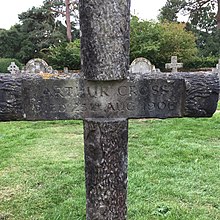
Hunstanton is a seaside town in Norfolk, England, which had a population of 4,229 at the 2011 Census. It faces west across The Wash. Hunstanton lies 102 miles (164 km) north-north-east of London and 40 miles (64 km) north-west of Norwich.

Sandringham is a village and civil parish in the north of the English county Norfolk. The village is situated 2 kilometres (1.2 mi) south of Dersingham, 12 km (7.5 mi) north of King's Lynn, and 60 km (37 mi) north-west of Norwich.

King's Lynn and West Norfolk is a local government district with borough status in Norfolk, England. Its council is based in the town of King's Lynn. The district also includes the towns of Downham Market and Hunstanton, along with numerous villages and surrounding rural areas. The population of the district at the 2021 census was 154,325.

North West Norfolk is a constituency represented in the House of Commons of the UK Parliament since 2019 by James Wild, a Conservative.

Harold Edwin Darke was an English composer and organist. He is particularly known for his choral compositions, which are an established part of the repertoire of Anglican church music. Darke had a fifty-year association with the church of St Michael, Cornhill, in the City of London.
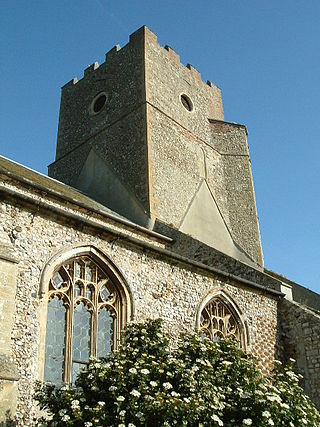
Heacham is a large village in West Norfolk, England, overlooking The Wash. It lies between King's Lynn, 14 miles (23 km) to the south, and Hunstanton, about 3 miles (4.8 km) to the north. It has been a seaside resort for over a century and a half.
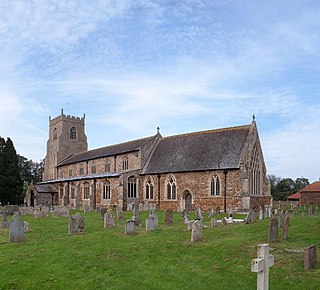
Dersingham is a village and civil parish in the English county of Norfolk.

Heacham was a railway station which served the seaside resort of Heacham in Norfolk, England. Opened in 1862, the station became a junction where services left the King's Lynn to Hunstanton line for Wells on the West Norfolk Junction Railway, which opened in 1866. The station closed with the Hunstanton line in 1969.
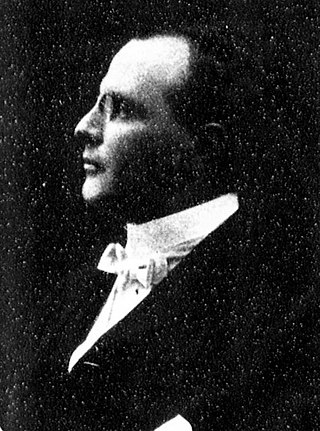
Howard Munkittrick, better known as Howard Talbot, was an American-born, English-raised conductor and composer of Irish descent. He was best known for writing the music to several hit Edwardian musical comedies, including A Chinese Honeymoon, The Arcadians and The Boy, as well as a number of other successful British musicals during the first two decades of the 20th century.

Sir John Frederick Bridge was an English organist, composer, teacher and writer.

The A149 is commonly known as "The Coast Road" to local residents and tourists, as this road runs along the North Norfolk coast from King's Lynn to Great Yarmouth, via coastal villages.

Dersingham was a railway station on the King's Lynn to Hunstanton line which served the village of Dersingham, a few miles north of King's Lynn, in Norfolk, England.

North Wootton was a railway station on the King's Lynn to Hunstanton line which opened in 1862 to serve the village of North Wootton on the outskirts of King's Lynn in Norfolk, England. The station closed along with the line in 1969.
The West Norfolk Junction Railway was a standard gauge eighteen and a half-mile single-track railway running between Wells-next-the-Sea railway station and Heacham in the English county of Norfolk. It opened in 1866 and closed in 1953. At Wells the line made a junction with the Wells and Fakenham Railway and at Heacham it connected with the line from Hunstanton to Kings Lynn.
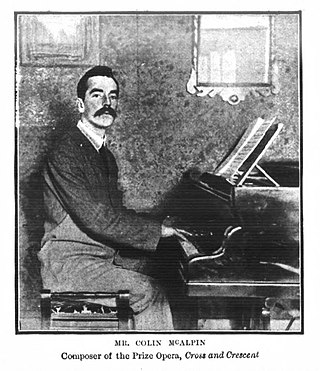
Colin McAlpin was an English composer of songs, operas and ballet music, an organist and a writer of critical essays on music.

Robert Watkin-Mills was an English bass-baritone concert singer of the late Victorian era who in his later career moved to Canada. An early recording artist, he recorded selections from the works of Schumann, Handel, Wagner, Gounod and Mendelssohn for Pathé Records (1903) and Odeon Records (1907-8).

The Lynn and Hunstanton Railway was a line connecting King's Lynn and Hunstanton in Norfolk, England that opened in 1862. The railway was a major factor in developing Hunstanton as a seaside resort and residential community. The company was allied to the West Norfolk Junction Railway which built a line connecting Heacham, south of Hunstanton, to Wells-next-the-Sea that was not a financial success. The companies amalgamated in 1874 to form the Hunstanton and West Norfolk Railway, and in 1890 the company was sold to the Great Eastern Railway.
Norman Chinner OBE LRSM was a South Australian organist and choirmaster.
West Norfolk Academies Trust is a multi-academy trust, serving schools in or close to King's Lynn, Norfolk.

